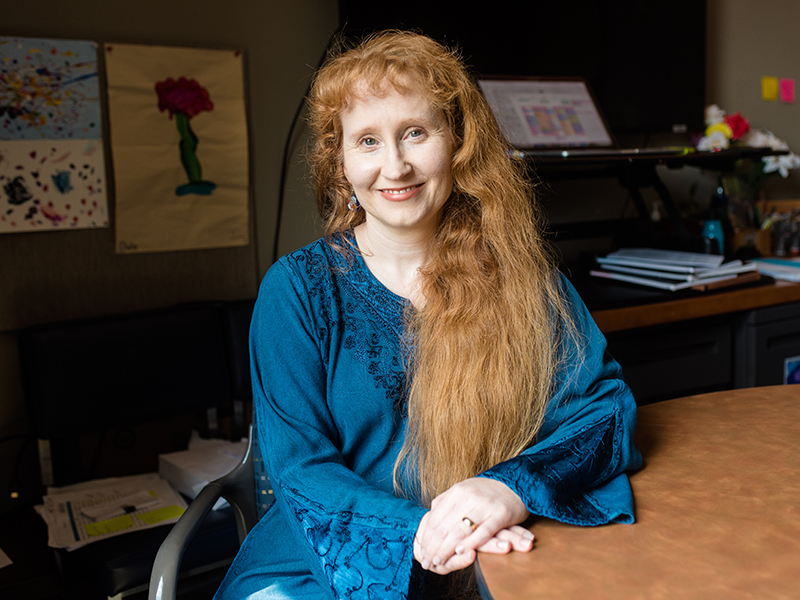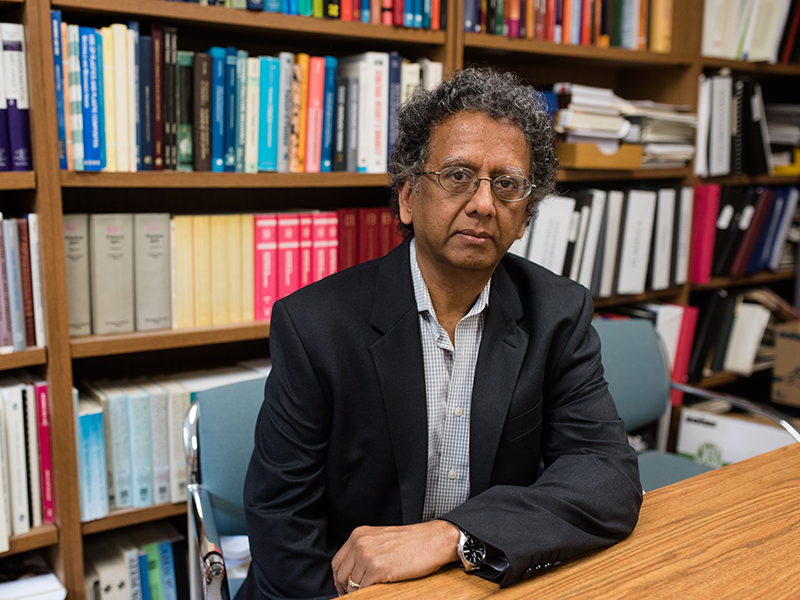Cockrell School Engineers Collaborate to Improve Breast Reconstruction Process for Patients
For many of the thousands of women who undergo mastectomies each year due to breast cancer, part of the healing process is breast reconstruction. However, reconstruction can be an arduous process based primarily on the surgeon’s own experience and skill. It can take multiple surgeries to get it right, and patients often face an overwhelming series of decisions with a number of options and conflicting preferences.

Mia Markey, professor in the Cockrell School of Engineering’s Department of Biomedical Engineering
Mia Markey, a professor in the Department of Biomedical Engineering, and Krishnaswamy Ravi-Chandar, a professor in the Department of Aerospace Engineering and Engineering Mechanics, are part of a team working to improve breast reconstruction outcomes and ease the decision-making process for patients. Their work is funded by a five-year $3.4 million grant from the National Institutes of Health.
The Cockrell School team is developing computer models of the breast using data volunteered by breast cancer patients that can be used to understand the factors that shape the organ.
“The breast is another structure, it’s just constructed differently [than non-biological materials],” Ravi-Chandar said. “We’re trying to build a model that can provide some understanding of the reconstruction process through numerical models so the surgeons don’t have to go through a trial-and-error process during surgery.”
In collaboration with plastic surgeons at The University of Texas MD Anderson Cancer Center, the Cockrell School engineers are also working with Michelle C. Fingeret, a clinical psychologist at MD Anderson, and Fatima A. Merchant, an engineering technology professor at the University of Houston. The data informing the models were collected from patients at MD Anderson scheduled to undergo mastectomies.
At the current research stage, the models capture the shape changes with position of a patient’s natural breast, pre-mastectomy. Eventually, the same software can be used to model the reconstructed breast so surgeons and patients can evaluate which materials and techniques would work best.

Krishnaswamy Ravi-Chandar, professor in the Cockrell School of Engineering’s Department of Aerospace Engineering and Engineering Mechanics
“It could provide some information to the patient ahead of time when the patient is making decisions about what kind of reconstruction, what to expect, and how it impacts the patient’s well-being in the future,” Ravi-Chandar said.
Breast shape changes with body orientation. So, to gather information on how breast shape and position change as the body moves, the team took 3-D scans of each volunteer’s chest and torso area as she was moved from lying on her back to an upright position. They also placed a random array of dots on the same area to track how the skin moved throughout the transition.
By tracking the changing position of the random dot array on the skin, the model revealed that skin across the entire chest area was significantly stretched as the body changed position, influencing the shape and position of the breast. The model also revealed that the breasts don’t stay in a fixed position as the body moves, but that the entire organ slides over the underlying muscle layer. Ravi-Chandar says this finding indicates the importance of connective tissue between the breast and muscle in determining breast shape.
Ravi-Chandar compiled this data and other materials research conducted on tissues in the lab to create life-like models that have already led to new insights on factors that influence the shape of the breast. He says the model findings on skin stretching and breast sliding are important points for surgeons to consider when developing a reconstruction plan post-mastectomy. But the model could be important in treating breast cancer itself.
“We have a model that can be further developed to guide diagnostic methods such as MRI and mammogram,” Ravi-Chandar said. “These are performed with the subject in different orientations. So the model could help in locating specific points correlating the different images.”
Ravi-Chandar says that the model, once improved to a clinical tool, could serve a dual medical purpose in preventative and reconstructive medicine. For those who need reconstruction, it could help improve surgical techniques and give patients a look at how their body is likely to personally respond to surgery. And for those who need surgery, the model could help with improved tumor location detection.
